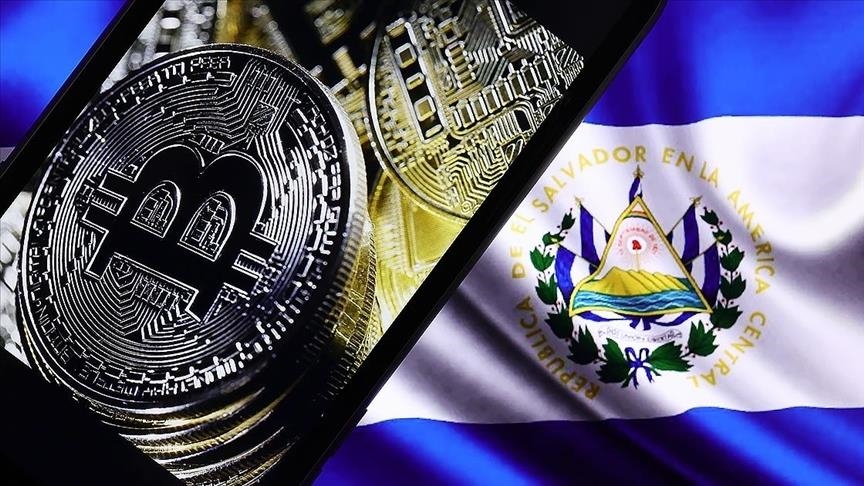El Salvador was the first country to make Bitcoin and the US dollar both legal forms of payment. In 2001, El Salvador replaced its own currency, the Colón, with the US dollar.
President Nayib Bukele, who is interested in cryptocurrencies, promoted the plan as one that would help the economy in many ways.
He said that making Bitcoin legal tender would help "push humanity at least a little bit in the right direction" by attracting foreign investment and creating jobs.
He wanted to build a whole "Bitcoin city," a tax-free place that would be paid for by selling $1 billion in government bonds. The plan was to spend half of the bond money on the city and the other half on buying Bitcoin. With the expected profits, the bondholders would be paid back.
Now, a year later, there is more than enough evidence to say that Bukele had no idea what he was doing. He has also called himself "the world's coolest dictator" in response to criticisms of his growing authoritarianism.
This risky financial experiment has almost turned out to be a total bust.
Getting Bitcoin to be legal money
Making Bitcoin legal currency meant a lot more than just letting it be used to buy things. That was already possible, just like it is in most countries, but not all.
If the person being paid was willing to accept bitcoins, a Salvadoran could pay for something with them.
But Bukele was not happy. If bitcoins were legal money, the person being paid had to take them. According to the law for 2021, "every economic agent must accept Bitcoin as payment from anyone who wants to buy a good or service."
In order to get more people to use Bitcoin, the government made an app called "Chivo Wallet" (chivo is slang for "cool") that lets people trade bitcoins for dollars without having to pay any fees. It also came with US$30 as a bonus. The average weekly income is about US$360, so this was a nice bonus.
Even though the law and these incentives are in place, Bitcoin has not caught on.
Not very happy to see them
In February, a national survey of 1,800 Salvadoran households showed that only 20% of the population used Chivo Wallet to buy or sell Bitcoin. More than twice as many people got the app just to get the US$30.
Only 20% of the people who said they owned a business said they accepted bitcoins as payment. Most of the time, these were big companies (in the top 10% by size).
In March, the El Salvador Chamber of Commerce did a survey and found that only 14% of businesses use Bitcoin to do business.
Making huge losses
The US$1 billion Bitcoin bonds scheme hasn't worked out, which is good news for the people of El Salvador. But the Bukele government has still spent more than $100 million buying bitcoins, which are now worth less than $50 million.
When Bukele told people about his plans in July 2021, Bitcoin was worth about $35,000 USD. When the law went into effect on September 7, 2021, it was around $45,000. It peaked at US$64,400 two months later.
It is now being sold for around US$20,000.
Bukele has tweeted about how proud he is of himself for "buying the dip," but almost all of the bitcoins the government has bought have been for more than US$30,000, with an average price of more than US$40,000.
About a year ago, Bukele told his people to keep their money in bitcoins. If someone did that, they would lose a lot of money.
Flawed analyses
Bukele doesn't understand Bitcoin, or economics in general. This has been shown over and over again.
In June 2021, he sent out a tweet that said, "Bitcoin is worth $680 billion. If only 1% of it is invested in El Salvador, our GDP would grow by 25%."
So, it looks like he thought Bitcoin was some kind of investment fund. It also showed that he didn't know much about GDP. GDP does not include foreign investment. Neither foreign investment nor GDP has increased.
In a tweet from January 2022, he said that a "huge price increase is just a matter of time" because there will only ever be 21 million bitcoins, but there are 50 million millionaires in the world. "Think about when each of them decides they need at least ONE #Bitcoin," he said. Bitcoin's value has since dropped by half.
The rest of the world doesn't think much of it
El Salvador's credit rating and its relationship with the International Monetary Fund have both gone down because of the Bitcoin plan. Investors are now less likely to lend money to the country, so local borrowers have had to pay higher interest rates.
In January, the IMF asked El Salvador to change Bitcoin's legal lender status because there were "large risks for financial and market integrity, financial stability, and consumer protection." Bitcoin is known for being volatile and for being used in scams and other illegal activities.
El Salvador has been trying to get a loan from the IMF for more than $1 billion, so this seems like a very hasty move.
This year, El Salvador's credit rating has gone down because Fitch is worried about the country's policies on Bitcoin.
No other country has done the same thing with its currency, not even ones like Zimbabwe and Venezuela that have discredited currencies.
Considering El Salvador's past, it's unlikely that any will.



Post a Comment